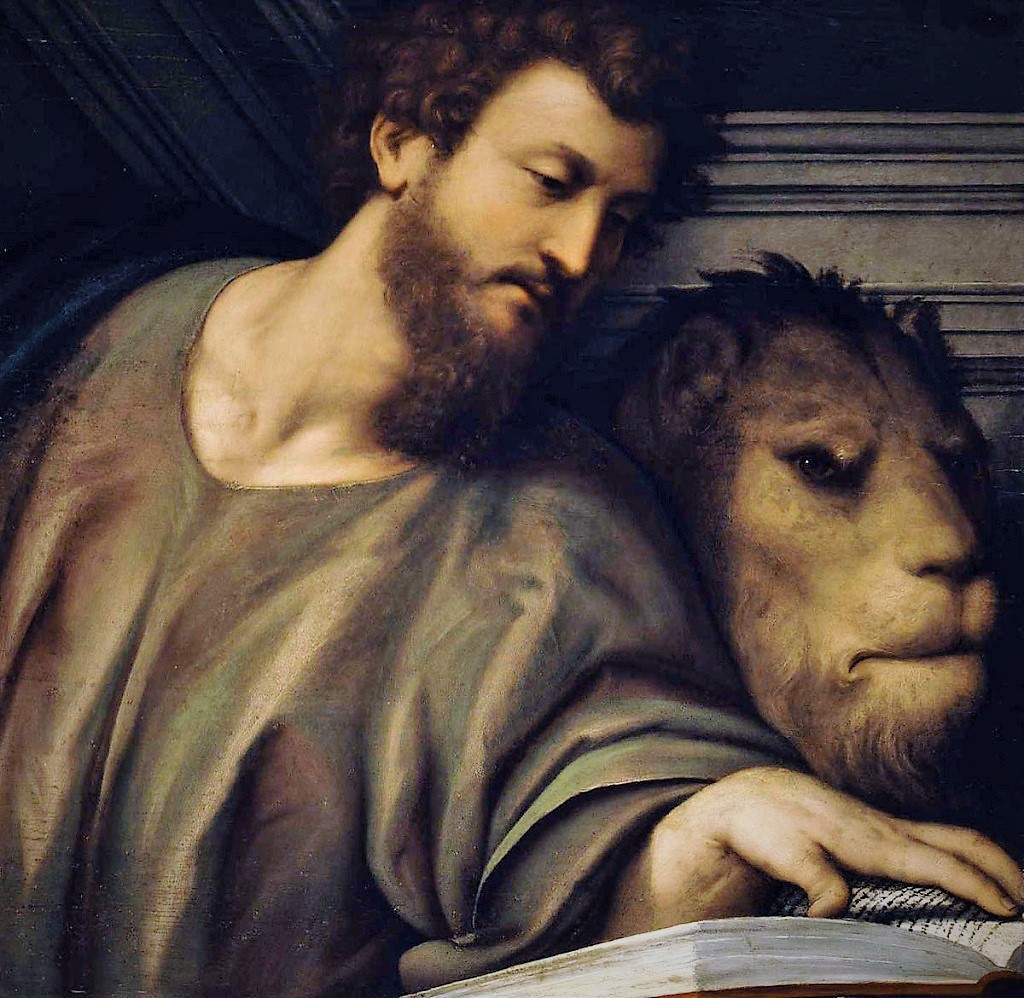Tomorrow, April 25, is the feast of St. Mark the Evangelist. The gospel that bears his name is similar in some respects to those of Matthew and Luke, and biblical scholars believe these three accounts of the public life of Jesus’ have a common source, known as the Q document. However, each of these gospels are still distinct. So what can we learn from St. Mark?
- Mark shows Jesus in a very natural and human light. His gospel tells of Jesus being angry (3:5) and sympathetic (5:36, 6:34.) Mark also tells us that Jesus admits to things He doesn’t know, such as the appointed time for the end of the world (13:32.) [St. Joseph Edition of the New American Bible, 1970]
- “This shortest of all New Testament gospels is likely the first to have been written, yet it often tells of Jesus’ ministry in more detail than either Matthew or Luke.”
- Even though Mark recounts the miracles and healings Jesus performed, Jesus’ messianic identity isn’t revealed until his entrance into Jerusalem (on the day we refer to as Palm Sunday.)
- Mark concentrates one half of his short account to just one week of Jesus’ life: from Palm Sunday to the Resurrection. “The storyline of Mark begins on the banks of the River Jordan in the wilderness, moves into Galilee then across the Jordan to Jericho and then up to Jerusalem, where Jesus’ identity is fully revealed as Messiah, Suffering Servant and Eucharistic Lord.”
- Unlike most of the other disciples, Matthew was not a fisherman, but a tax collector. Just as today, tax collectors were not exactly popular folks. And for Mark, his job gave him the opportunity to steal money. Yet all it took for Matthew to become a disciple was for Jesus to speak two words: “Follow me.” (Mt. 10:3) Matthew immediately answered that call, and he did it wholeheartedly.
So what can we learn from St. Mark? We learn that our relationship with Christ should be very personal, and remember that Jesus was both fully human and fully divine. We learn from Mark that, in an incredibly short time, the world can change. And Mark’s life illustrates for us that even sinners and outcasts are welcomed by Jesus.
St. Mark the Evangelist, you gave yourself completely to Christ and left behind sinful ways. Pray that we too can give ourselves to Christ with our whole hearts. Your witness to Jesus’ public life is a treasure for us; pray that we can stand grounded in the Gospel truth. We know, just as you did, that the life of a Christian is one meant to share the Good News. Pray that we may do that in every moment, every day of our life. Good St. Mark, pray for us! Amen.

